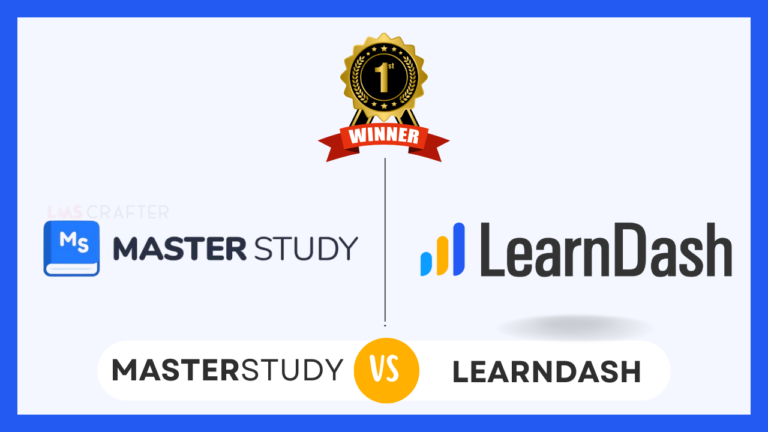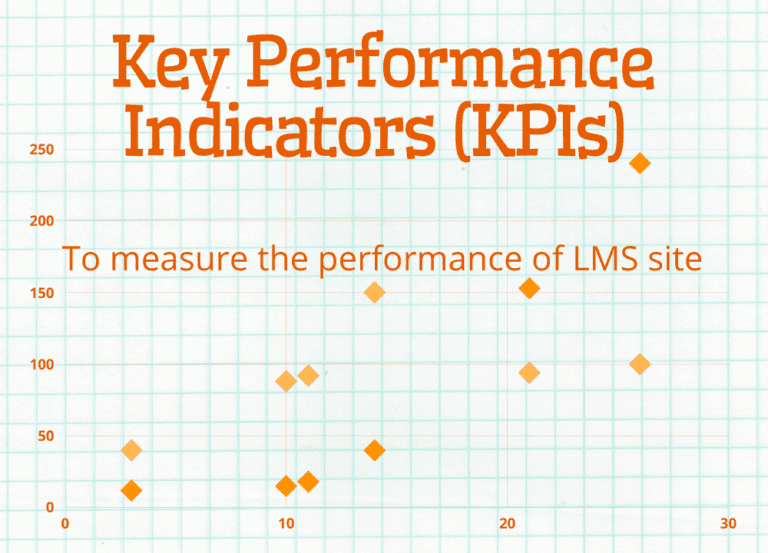7 Best LMS Plugins for Online Courses in 2024

People get confused when choosing among the best LMS plugins for WordPress to build and run successful online courses. LMS plugins allow you to craft and run online courses like Udemy but, on WordPress. LMS plugin is a little bit different from the Membership plugin.
Although some membership plugins like MemberPress come with built-in LMS features as well, these are mostly used to protect the course content while LMS plugins are used to build that content.
Perfect WordPress plugin enables you to build your courses, add quizzes and gradings, drip-feeding the courses, allow multiple payment options and much more. In this article, we have compared the most renowned LMS plugins based on ease of use, features, functionality and price to help you choose the best plugin according to your specific needs.
The 7 Best LMS Plugins (Compared):
Let’s have a look at some of the best LMS plugins for WordPress and their specifications..
1. Learndash:

Learndash offers a comprehensive set of features to develop and run online courses. It comes with an easy drag and drop builder which makes it very easy to create professional-looking courses.
You can add quizzes, test management tools, point scoring, certifications and activating triggers based on actions. This is why it is trusted by many well-known names like Yoast Academy, the University of Florida, Keap and the University of Michigan.
It offers drip-feeding if you do not want your students to get access to all of the courses, you can open the lessons at a scheduled time or you can put a restriction that the next lesson can not be accessed before finishing the previous one.
It also comes with a built-in forum feature, which can be used for group discussions to provide a community feeling to the students. It integrates beautifully with a lot of other plugins like bbPress, MemberPress, MailChimp, GamiPress, WooCommerce and many more for added functionality.
Learndash gives plenty of options to sell your courses in bundles, subscriptions, as a one time purchase or memberships as well as a shopping cart. It also provides multiple payment gateways including PayPal, Stripe and 2 Checkout.
Price:
Learndash offers 3 plans. Its basic plan costs $159 billed annually with a one site licence. The second plan costs $189/annually with 10 site licences and the third plan costs $329 with 25 site licenses.
2. MemberPress:
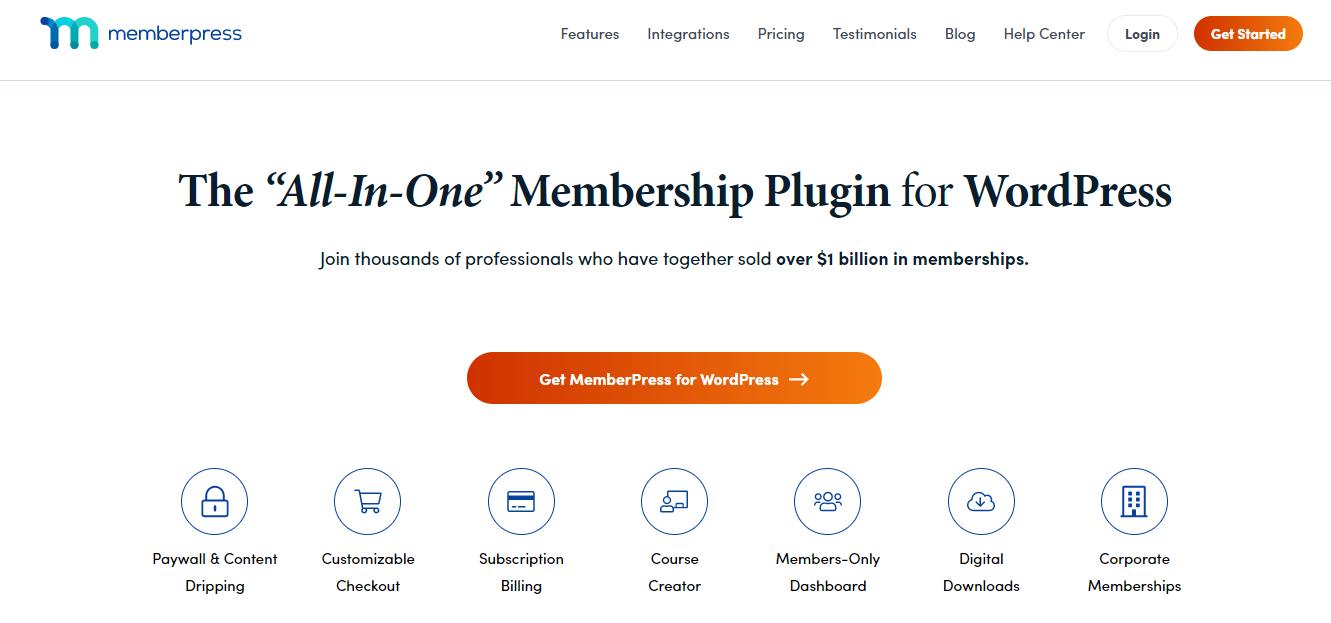
MemberPress is also a well-established LMS plugin which comes with many great features to design polished online courses, add quizzes and assignments and sell courses.
MemberPress comes with a drag and drop interface as well as a WordPress block builder to build your course easily. Just like LearnDash, it allows adding images, videos, lessons, topics and much more. Which makes it quite easy to use.
A unique feature of MemberPress is its classroom mode, so you do not have to design the online classroom yourself. It also allows you to see the course from the student’s perspective and easily view the progress of students and their completion rates.
It also offers a content dripping feature which allows to restrict access to future lessons and shows a specific lesson at a time.
MemberPress has strong access rules which are used to control who can access your course content. If you are offering membership with your courses, it is quite awesome as it provides more advanced options to sell bundles, packages and memberships.
It also provides a members-only area which can only be accessed by the membership owners. If you want your blogs, discussions or any other content restricted to your membership only, this is a great feature for your needs.
It also integrates seamlessly with all the popular WordPress plugins and offers multiple payment gateways like PayPal, Stripe, Authorize.net and more.
Price:
MemberPress also offers 3 types of packages. First is the basic plan which costs normally $279/year for one site. Then they have a plus plan at $449/year for 2 sites and a pro plan at $599/year for up to 5 sites.
3. Lifter LMS

The best thing about lifter LMS is that its core plugin is free and it is rich in features which is why many people use it along with a payment extension that starts from $120/year. However, its free version just includes the core plugin but you can purchase multiple add-ons from their website to enhance functionality.
It also comes with an easy drag and drop builder and integration with Divi and Beaver Builder which is quite attractive for beginners who do not want to mess up with code and have a sleek course design. It also includes a graphic pack with backgrounds and other design elements.
With Lifter LMS, you can give homework assignments and downloadable material to the students. You can create multiple quizzes and set timers to make them more interesting and challenging. It offers many gamification features like badges, certifications and automated emails.
It also has content-dripping features and you can even assign multiple instructors to a single course to provide more expertise to the students and create discussion areas for your students to connect.
It also offers multiple monetization ways to sell your course. You can offer paid memberships, sell bundles, sell courses to only members or set one-time payment for your course.
It also provides integrations with many plugins like Mailchimp, WooCommerce, WP forms etc. It also provides a course import and export tool, which makes it very easy to move among different platforms.
Price:
Core Lifter LMS plugin is completely free but you can purchase different add-ons for as low as $120/yearly. Its free version offers many features, but you have to purchase a payment integration add on to use multiple payment gateways.
You can make a simple course using the the free version but for advanced features, you will have to buy from its paid bundles. The Universal bundle costs about $360/year for 5 active sites and infinity bundle costs $1200/year for unlimited sites.
4. Tutor LMS
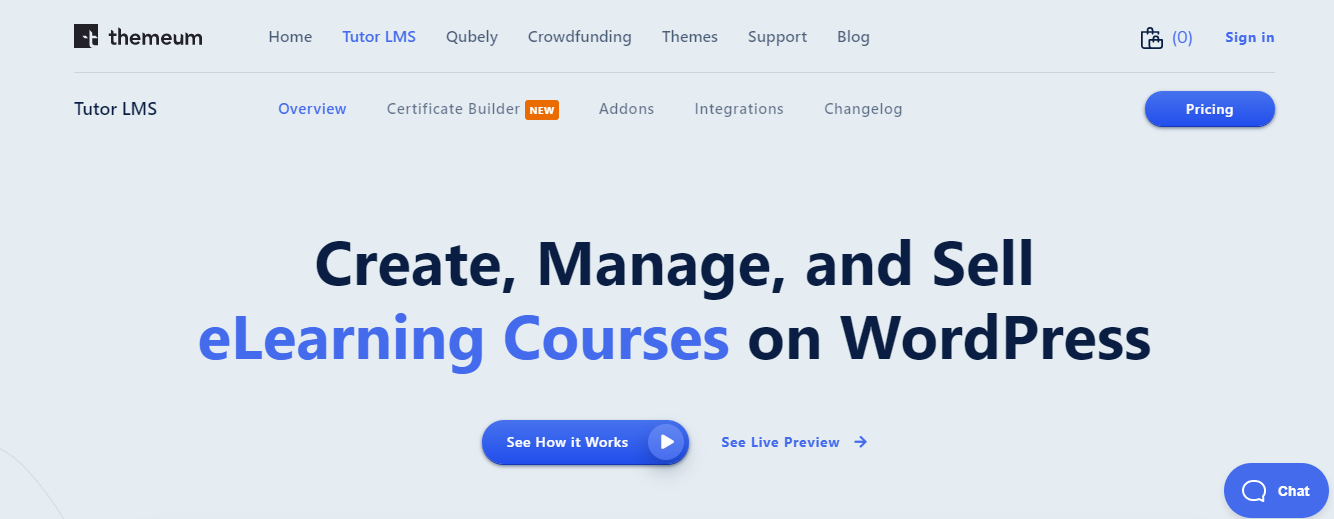
Due to its intuitive front-end course builder, certificate builder and intuitive drag and drop builder, tutor LMS has gained much popularity despite being a new plugin in the market.
It comes with different dashboards for students, tutors and admin which means each dashboard has different options according to the specific role. You can manage student and tutor profiles from the admin panel as well. If you are an institution based organization with multiple tutors, this is quite a nice thing.
It is also famous for its quiz builder which offers 10+ types of questions which is a lot more than other LMS plugins. You can also set timers or set attempts limit to make the quizzes more challenging. You get full control over learning path management as it offers content dripping as well but it comes in the premium version.
It includes Q&A forums for students to enhance communication and ask questions. You can send fully customized emails to your students and it has a built-in email template editor too.
They provide one-click migration tools if you want to move to another platform. However, this function currently supports only Learndash and LearnPress. It integrates beautifully with Elementor to give you enhanced designs and allows integration with Google Classroom and Zoom too. However, as it is a new plugin, currently it offers fewer integrations than the Learndash. However, they are trying to improve it.
It covers all monetization plans by supporting eCommerce plugins like Woocommerce, PaidMembershipsPro, Restrict Content Pro etc. It is quite easy to use and customize for new course makers as it also provides a free version which you can use before buying the paid versions.
Price:
The core plugin is completely free but it has very basic features. Tutor LMS offers 3 paid plans as follows:
Individuals: $149/year with one site license
Freelancers: $199/year with 5 site licenses
Agencies: $299/year with unlimited licenses
5. LearnPress
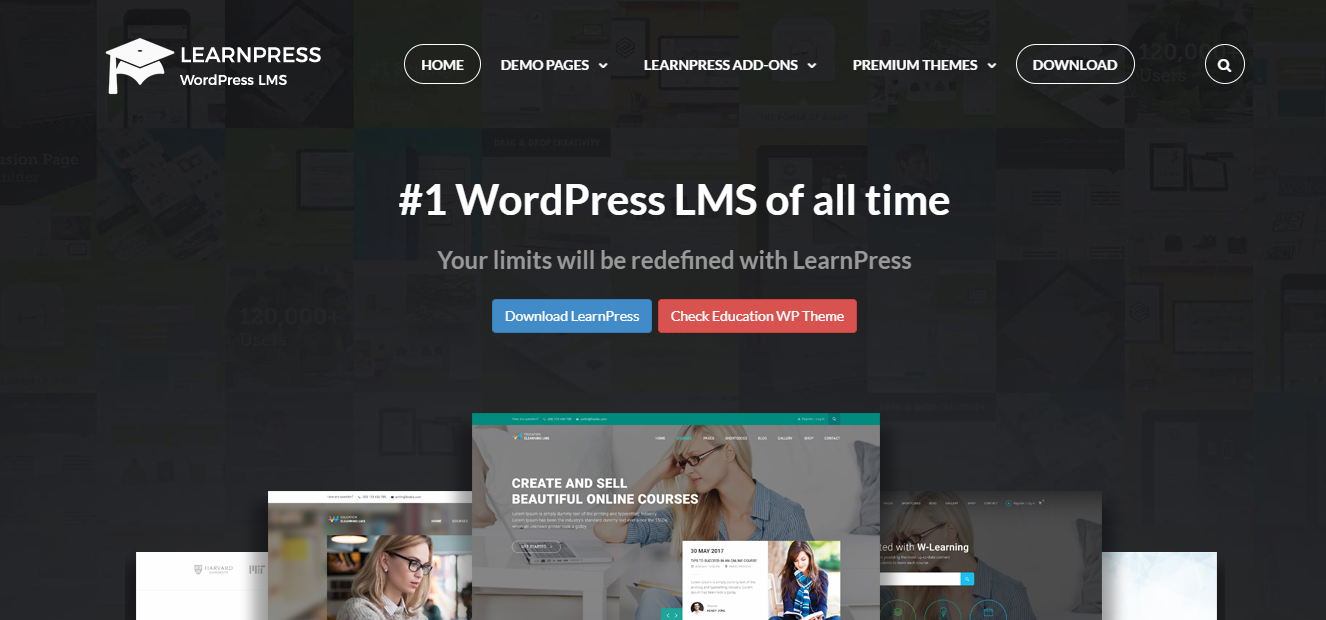
LearnPress is our fifth choice among the best LMS plugins for WordPress. It also a free WordPress LMS plugin with a user-friendly interface similar to a WordPress dashboard and comes with a set-up wizard which makes onboarding easy even for beginners.
It comes with many add-ons which include both free and premium ones. Free add-ons include wish lists, course reviews, export-import and prerequisite courses. While premium add-ons enable you to have a drip-feed feature, multiple payment integrations and co-instructor support.
You can build courses of your choice with drag and drop course builder using multiple quizzes, lessons, questions and assignments. You may need to use different add-ons depending upon how advanced you want your course to be. It also provides a point system and badges to gamify your courses.
It supports free integration with bbPress, Woocommerce and WordPress membership plugins and provides multiple payment gateway options like Paypal, Stripe, Authorize.net and more.
LearnPress works with any WordPress theme but it’s better to choose from one of their own LMS WordPress themes to avoid any compatibility issues. Once you have a free version then you will probably buy a theme for about $50 and spend $30 for a payment integration to enhance its functionality.
One downside of LearnPress is that it is not responsive to more traffic and there are also complaints about its customer support which should be revised.
Price:
LearnPress core plugin is free while you pay for multiple add-ons. Premium add-ons cost $19.99, $29.99 or $39.99. You can also purchase their premium add-ons bundle for $249.99. All these fees are only one-time fees so that’s a good thing that you don’t have to pay an annual recurring fee.
6. WP Courseware
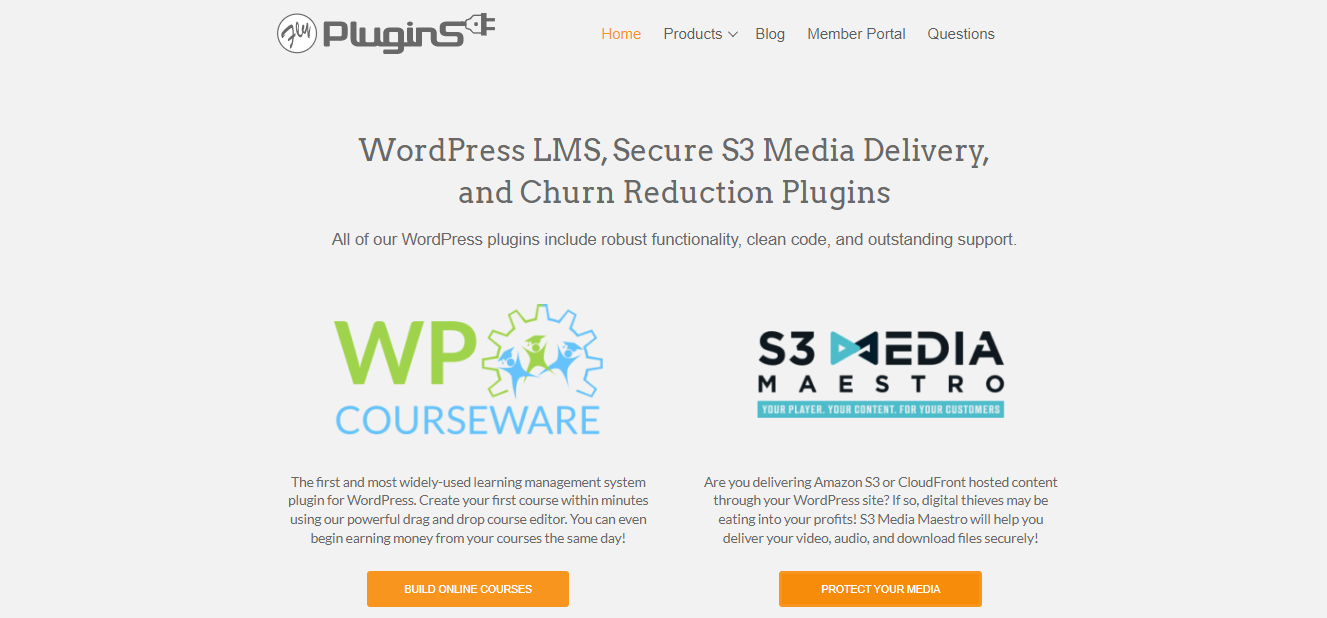
WP Courseware is an amazingly affordable WordPress LMS plugin as it comes with much less complicated pricing than some other LMS plugins and it integrates with so many WordPress plugins out there like OptimizePress, BuddyPress, Visual Composer and a wide range of membership plugins which makes it one of the best LMS plugins for WordPress.
Its visual designer working with a drag and drop elements helps to create polished courses without having to code anything and provides course protection, drip-feeding and email notifications.
It enables you to offer 2 types of quizzes known as blocking and non-blocking quizzes. Blocking quizzes need to be passed to move to the next lesson while non-blocking quizzes do not have this restriction. Moreover, you can generate random quizzes throughout the course with its question banks.
It also offers a multi-instructor role, where you can assign multiple things to different users by assigning them an instructor role. You can also check students” grade books to analyze their progress and performance.
You can integrate to any eCommerce plugin to sell any way you want. It also has a built-in cart which is compatible with many payment options including PayPal and Stripe. You can also offer free courses to give your prospective students a taste of your expertise and to build a mailing list.
Price:
Its teacher plan includes 2 site licences for $149/year which is quite awesome for those who have 2 sites. The professor plan is for $169/year for 10 site licences and the the Guru plan is for $249/year for 25 site licenses.
7. Sensei

Sensei is developed by Automatic which is the company behind Woocommerce which makes it highly reliable. That is why it made its place in our list of best LMS plugins for WordPress. You can use it all by itself to sell free courses, but to charge for courses, you need Woocommerce with it.
Sensei makes course building as simple as creating posts and pages with the WordPress editor and attaching video lessons, audio, written content, quizzes and much more. You can also manage students’ progress by checking their grade books. The majority of WordPress well-coded themes work nicely with Sensei. So, with a little effort, you can turn an entire website into an online classroom.
Sensei displays random quizzes depending upon a set of questions which you choose from their questions bank before course launch. You can also set quiz grading to be manual or automatic. It also offers simple course analytics which provides information on course completion rates, student registration and grading.
To sell courses whether it’s a one time sale or recurring payments, you need to install WooCommerce for this which can be a little difficult for beginners. Also, it does not offer as many third party integrations and features as other LMS plugins.
It also does not provide drip feeding in their basic package which is for $49/year, rather it is offered in their Pro plan which costs $149/year.
Pricing:
Sensei offers three plans as follows:
Sensei Blocks: $49/year
Sensei Pro: $149/year
Sensei Agency: $349/year
As you need to purchase Woocommerce to sell courses, which is an added cost, it becomes quite an expensive option.
Conclusion:
As far as the best LMS plugins for WordPress are concerned, there are many other options available in the market which usually vary in features. While every plugin can be used to make and sell simple courses. However, you need to check the features depending upon what is your budget and how advanced you want your course to be and how much you are interested in having your course analytics.
If you are just starting your course website and want to know the difference between selling a course and selling a membership, do check our article here. If you need an expert advice to choose the best LMS plugin according to your specific requirements, our LMS crafters can help you. Check out our services page to book a free 30 minute call or try our premium consultation services.

